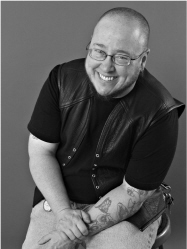Macho Sluts (53 page)

Whereas prior to the case, virtually every international shipment of books that was ordered by Little Sister's was opened and inspected and many books detained or prohibited entry, I can happily report that today Customs does not even inspect, let alone detain or ban, any book that Little Sister's has imported into Canada.
1
That is a triumph for Little Sister's; it is a triumph for the gay and lesbian community; it is a triumph for Canadians who care about freedom of expression and especially of sexual expression.
And it is a triumph that may not have come about but for
Macho
Sluts
âthat which was so egregiously censored by Customs, and so courageously defended by its author, Pat Califia.
Joseph Arvay was the chief counsel for Little Sister's Bookstore during its
trial against Canada Customs. His practice is based in Vancouver.
1.
There is one notable exception. After the Supreme Court of Canada rendered its judgment, Customs detained and prohibited two comic books of the
Meatmen
series. Little Sister's once again launched another constitutional challenge and that too went all the way to the Supreme Court of Canada on a procedural issue not relevant to this comment. However, there was never a detention or prohibition after that and to the present day. Customs obviously knows that if it tries to censor books and other expressive material destined for Little Sister's, it will be challenged. For all intents and purposes, Little Sister's has emasculated Customs and its laws when it comes to banning gay and lesbian expression.
Jim Deva, co-owner, Little Sister's Bookstore
The reissue of
Macho Sluts
as part of the Little Sister's Classic series gives me great joy and reinforces the mission of the series: to keep important LGBT books in print. This book became an integral part of our legal battles with Canada Customsâno other book received such intensive scrutiny, was seized and destroyed, seized and released, and then seized again and burned. It became a classic example of the insanity of a government bureaucracy attempting to create a regimen of censorship in a free and democratic society, attempting to protect and save its citizens from transgressive literature.
They say you should not judge a book by its cover, but it was not the cover of Pat Califia's book that garnered the attention of Customs workers. It was the title. When you put the two highly charged words “macho” and “sluts” together on a bill of lading, then pass it by the inquisitive noses of Customs agents, I guarantee you will receive an immediate Pavlovian response. Much the same way a well-trained beagle can sniff out our favorite weekend party drugs, Customs agents seemed to be able to sniff out a shipment of books containing the title
Macho Sluts
. There were times in our many attempts to import the book that I wish the title had been
Submissive Ladies
âthat would have been a title that would have raised no eyebrows, would have quietly crossed the border, much in the way that Jane Austen's novels have quietly defined how a young lady should behave. In many ways, Pat Califia's
Macho Sluts
is the antidote to Jane Austen; Califia did not simply push the boundaries with this book, she blew up a transnational border, like a burning cigarette in a fireworks warehouse. Strong women in charge of their lives and their sexuality were not something that Canada Customs had much experience with, and it was time that they learned.
It is one thing to write an important book in the privacy of your home, hunched over a computer keyboard, just you and the words in front of you. It is entirely another to come out into the light of a judgmental society, eager to condemn all that is confrontational and new. Pat Califia not only talked the talk, Pat walked the walk with the bold and brave defense of the book during our long and important court case. Pioneers who dare to challenge existing codes of conduct often face societal condemnation, and those who truly attempt to change the world in any significant way can expect overwhelming opposition. Pat Califia faced this hostile judgment in a Canadian courtroom and came out the proud victor. Pat Califia will forever remain one of my heroes in our epic fight for the right to choose what we read and view. Now a whole new generation of readers will be able to appreciate the bravery of this important book and author. Please savor and enjoy.

P
ATRICK
C
ALIFIA'S writing and activism have revolutionized the concept of queer sex. He has written over a dozen books, including
Coming to Power, Melting Point, No Mercy,
and
Speaking Sex to Power.
His work has been translated into six other languages. Almost ten years ago, Califia transitioned from female to male; he now lives as a bisexual transman in San Francisco.
W
ENDY
C
HAPKIS is a Professor of Sociology and Women & Gender Studies at the University of Southern Maine in Portland. She is also the co-author of
Dying to Get High: Marijuana as Medicine
(New York University Press, 2008).
